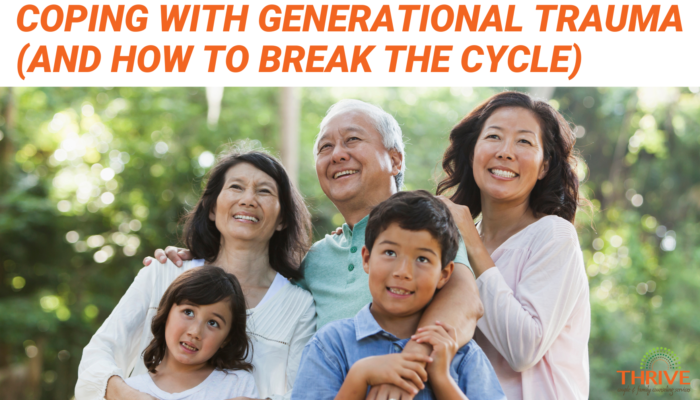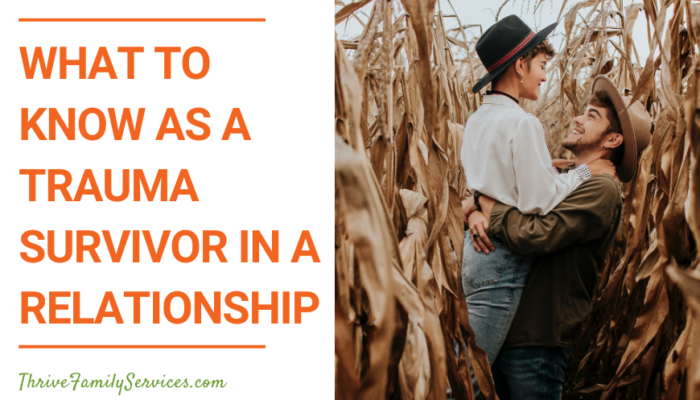What is Generational Trauma?
Generational trauma refers to the way in which psychological and emotional distress can affect and migrate from one generation to another. This is a phenomenon that our Colorado family therapists are familiar with.
We know that trauma can have drastic effects on a person individually, but it can also be unconsciously passed down through family lines, cultures, and even create societal norms that are counterproductive to human needs and wellbeing.
Generational trauma can range from events such as wars, genocide, and tragic events to more personal struggles such as addiction, abuse, or neglect. The impacts of this type of trauma can manifest as behavioral patterns, emotional reactivity, and even changes in the brain’s structure and chemistry.
In the modern landscape, the term trauma has become a bit of a catch-all to explain how our experiences affect our beliefs, biology, thoughts and emotions. Research has shown that many types of traumas change the biology of our brains and can have devastating effects on our nervous system. It has become clear that trauma is not just a mental health issue, but can create lasting impacts on our genetic code, society, and culture.
With all this new understanding of how trauma affects us individually, it is no wonder that when we zoom out, we see massive ripple effects throughout history.
What is impacted by generational trauma?
Epigenetics
Epigenetics is a big word for changes in genetic expression that are influenced by environmental factors.
Things like wars, pandemics and other major incidents on a societal and personal scale can change the way our genes express themselves and alter our genetic code.
Parenting styles
Trauma especially when it is experienced on a large scale such as with marginalized communities impacts the ways in which we parent.
Individuals who have experienced trauma and developed less than ideal coping mechanisms might unknowingly replicate behaviors and emotional patterns they learned which are then passed down to their children, continuing the cycle.
Family Narratives
The stories that we tell about our history shape the way we view and deal with trauma.
Have you ever heard or muttered the phrase “pull yourself up by your bootstraps?” This phrase is rooted in the belief that it is the individual’s responsibility for their own wellbeing. This belief can affect the way we respond to others who are going through trauma, often silencing them or invalidating their experiences.
Attachment Patterns
Trauma can impact the ways in which we attach to others. Insecure, avoidant and disorganized attachment styles stem from relational trauma and can be passed down through unconscious behavior patterns.
Cycles of Behavior
Generational trauma can lead to the repetition of harmful behaviors and coping mechanisms.
As an example, if a family has a history of substance abuse to numb the pain, this pattern might continue in later generations as well.
Emotional Inheritance
The emotions associated with traumatic events, such as fear, anger, and grief, can be passed down through generations. These emotions might not have an apparent source in the individual’s life but can still impact their mental health.
Have you ever had a feeling seemingly pop up out of nowhere? This could be that your body is reacting to a trigger from a trauma you as an individual didn’t even experience. Because traumas can change our genetics, this reaction was passed down to you.
Cultural Identity
Trauma can impact a community’s sense of identity and belonging. The stories of suffering and survival become woven into the cultural narrative, influencing the way individuals perceive themselves and their place in the world.
Breaking the Cycle of Generational Trauma
Breaking the cycle of generational trauma requires awareness, compassion, and intentional effort. Here are some steps individuals and communities can take towards healing:
Awareness
Recognizing the existence and impact of generational trauma is the first step. This awareness can help individuals understand their behaviors, reactions, and emotions within a larger context.
Seeking Help
Professional support, such as therapy, counseling, or support groups, can provide tools to process and heal from generational trauma. These resources offer a safe space to explore and address the emotional wounds that have been passed down.
Open Dialogue
Creating open and honest conversations about family history and trauma can foster understanding and connection. Sharing stories and acknowledging the pain can validate experiences and promote healing.
Self-Care
Practicing self-care techniques can help individuals manage their emotions and build resilience. Mindfulness, meditation, and other stress-reducing activities can be particularly beneficial.
Resilience-Building
Developing resilience can help individuals break free from the grip of generational trauma. This involves learning healthy coping mechanisms and cultivating a strong sense of self as well as developing healthy boundaries.
Generational trauma has widespread consequences ranging from individual and family systems to shifts in cultural identities. It is important that we address this cycle on an individual and societal level as the repercussions can ripple throughout time.




